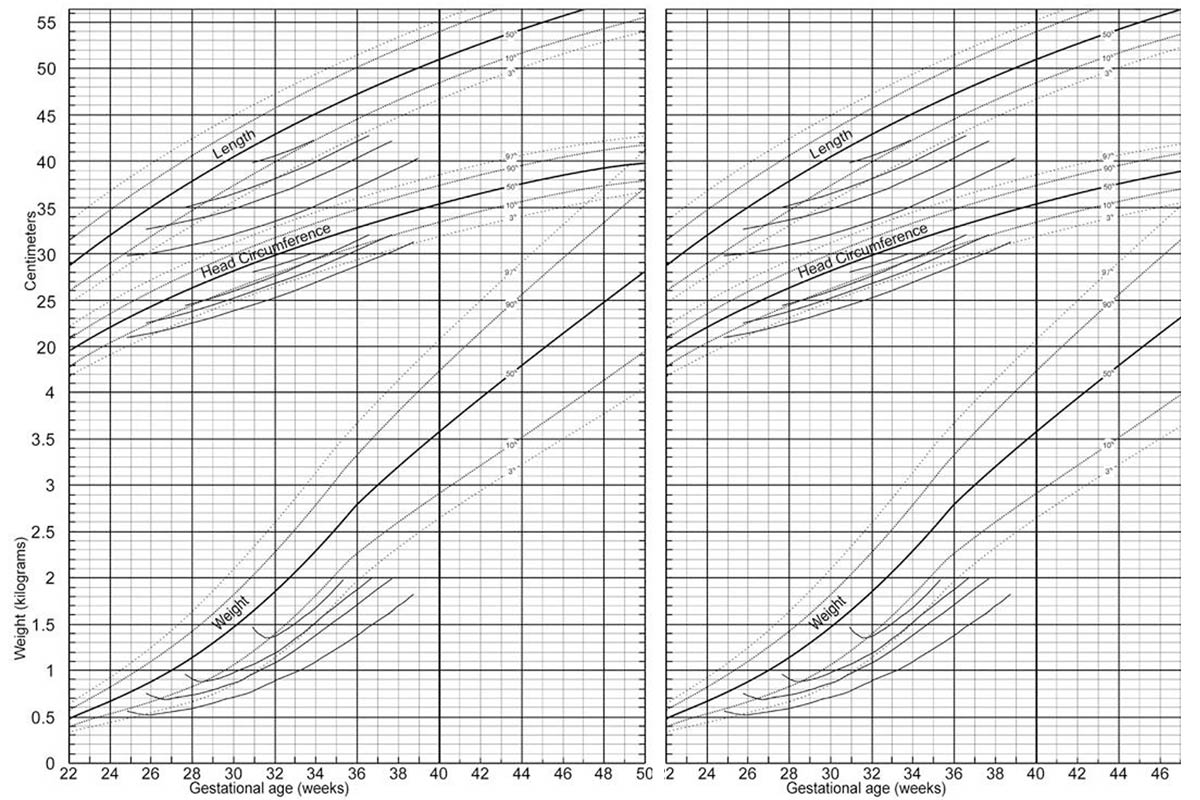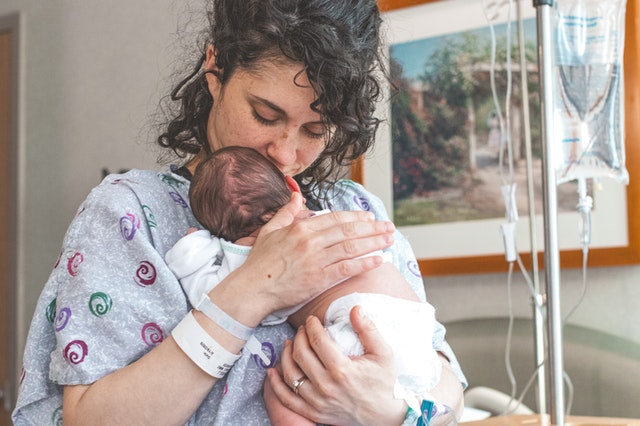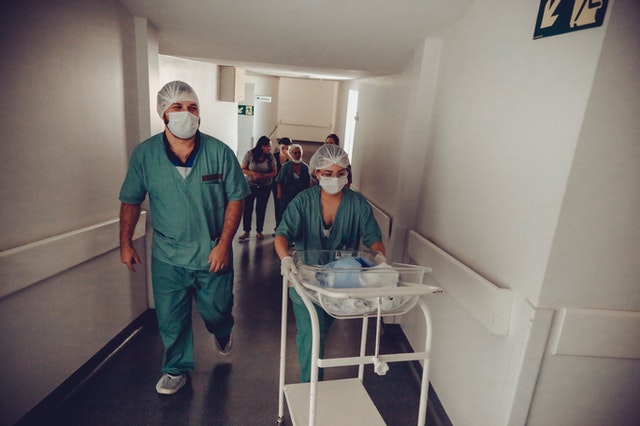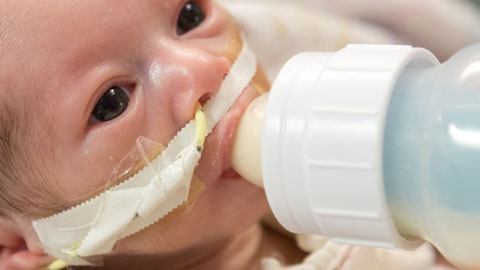If you’re a new mother with a premature baby, you may be feeling overwhelmed and unsure of what you need to do or where to turn for help. Premature babies require specialized care, and there are many things you’ll need to buy or prepare before your baby arrives. This blog post will outline some of the essentials for preemies, so that you can be prepared for your little one’s arrival.
A premature baby is one that is born before 37 weeks gestation. Premature babies can face many health challenges, but with proper care and support, they can thrive just as well as a full term infant.
Once your premature baby is discharged from the hospital, there are a few things you’ll need to know in order to care for them at home. Here are some premature baby essentials:
Feeding
Premature babies often have difficulty sucking and swallowing, so they may require special feedings or feeding tubes. After discharge, be sure to follow the instructions provided by your baby’s doctor on how to properly feed them.
Sleep
Premature babies often have trouble sleeping through the night, so be prepared for plenty of interrupted sleep. Try to create a soothing sleep environment by sticking to a regular sleep and wake schedule and using white noise during naps.
Exercise
While premature babies should be kept calm and still after discharge, they need exercise too. Encourage movement — gently — by making sure that your premature baby has plenty of tummy time daily (being held upright over a folded blanket also helps). Swaddling premature babies with their arms free can also help them self-calm. Talk to your child’s doctor about how much activity is right for your premature baby.
Premature baby survival rate in 2021
The survival rate for premature babies has gone up to 98% in 2017. This is according to the World Health Organization (WHO). The organization talks about the “Lancet Newborn” research findings.
The Lancet Newborn report states that more premature babies are surviving than ever before, thanks to advances in medical care. New treatments have helped many newborns who were not expected to survive outside their mother’s womb, progress beyond day 24 of life after birth.
Jeremy Shoham is director of neonatal services at Soroka Medical Center in Israel, which is part of the study by WHO and others on the outcomes of premature babies born from 22 weeks gestation till term. He says it can be disconcerting when a preterm baby is born, but “the advances in medical care have been significant and continue to evolve”.
The Lancet Newborn report was funded by the Bill & Melinda Gates Foundation. The Gates Foundation also supports neonatal intensive care units in developing countries through its Saving Lives at Birth program.
Some of the main findings of the report are as follows:
– the global survival rate for premature babies has increased from 72 percent in 2000 to 98 percent in 2017
– In Europe, almost all premature babies now survive (99 percent)
– The greatest progress has been made in Africa, where the survival rate for premature babies has increased from 49 percent in 2000 to 80 percent in 2017
– More preterm babies are surviving beyond their first week of life, with the greatest increase in survival rates seen for babies born at 23 to 24 weeks’ gestation
– The number of premature babies who survive without any disability has increased from 44 percent in 2000 to 66 percent in 2017.
However, the report also finds that preterm birth is still the leading cause of death among children under 5 years of age, accounting for 15 percent of all such deaths. It also points to a large disparity in survival rates between rich and poor countries.
In high-income countries, almost all premature babies now survive (99 percent), whereas in low- and middle-income countries the survival rate is around 80 percent. This is mainly because access to quality health care, including neonatal intensive care, is often limited in poorer countries.
The Lancet Newborn report is a welcome reminder of the remarkable progress that has been made in the care of premature babies in recent years. With continued advances in medical technology and improved access to quality health care, we can look forward to even better outcomes for these vulnerable infants in the years ahead.
As mentioned earlier, according to the World Health Organization (WHO), the survival rate for premature babies has gone up to 98% as of 2017. This astonishing number is due to the continuous advancements being made in medical technologies and treatments.
Why was my premature baby on the ventilator?
For premature babies, or babies born before they are fully prepared to live outside the womb, breathing can be a challenge.
The premature infant must breathe on its own right away. This is because premature infants may not have stored enough oxygen in their blood and may not be able to extract enough oxygen from the air (oxygenation) even if it is breathed into their lungs.
Most premature newborns will need help with this process called mechanical ventilation until they are strong enough to breathe independently.
How long an infant spends on a ventilator depends on several factors including gestational age at birth, severity of illness, overall health, ability to feed orally and response to support measures initially provided by the ventilator.
An infant who requires only intermittent ventilator support will usually be able to go home sooner than an infant who is receiving continuous ventilator support.
Differences in the premature baby’s respiratory system mean premature infants are more likely to have problems associated with breathing for the first few weeks.
The premature baby may vomit after feedings, develop low blood oxygen levels (called “hypoxemia”) and/or too much carbon dioxide (called “hypercapnia”), or even suffer seizures due to these issues. The use of a ventilator can help prevent these problems, often without any long-term consequences for premature babies whose systems mature before full-term infants’ systems do.
Taking your premature baby out of the NICU….finally!
Once your premature baby has been cleared for discharge from the NICU, it’s time to start planning for your little one’s departure. Here are some tips to help make the transition home a smooth one:
- Get organized. Make a list of items you will need for your premature baby and make sure you have everything before you leave the hospital. Some things to consider include: diapers, wipes, clothes, bottles, formula or breast milk, and a car seat.
- Ask for help. If possible, ask a friend or family member to stay with you for a few days after your premature baby comes home. This extra support can be invaluable in those early days.
- Arrange for a follow-up appointment with your premature baby’s pediatrician. Let them know how your premature baby was doing in the NICU and if there have been any complications during the premature baby’s return home.
- Continue to offer premature baby feedings as often as possible, even if it means waking him or her up from naps. As long as premature baby tolerated breastfeeding well before being discharged from the hospital, this is a great way to help your premature baby continue to grow and gain weight. If you will be using formula, mix some into a bottle of expressed breast milk or premade breast milk that has been stored in the refrigerator prior to discharge. The combination of formula and breast milk provides optimal nutrition for your premature baby.
- Keep premature babies on a regular routine as much as possible. This will help him or her adjust to life outside of the NICU.
Returning home can be both exciting and overwhelming for parents of premature babies. By following these tips, you can make the transition a little easier for both you and your premature baby.
What kind of premature baby formula should you use?
You probably would wonder what kind of premature baby formula should be used if you have a premature infant. There are many premature baby formulas in the market that you can choose from. In this chapter, we will review some premature baby formula that is available for premature infants.
Which premature baby formula should you choose for your premature infant? Ultimately, the decision will be made by your doctor but these are some premature baby formulas that are available on the market. premature baby formula is an important decision and it is one that should not be taken lightly. So, do your research and talk to your doctor to see which premature baby formula is best for your premature infant.
Neosure
Neosure is a premature baby formula that is sold by Abbott Nutrition. With 25 grams of protein and 26 Vitamins and minerals per 100-calorie serving, this product makes a good supplemental feed for premature babies who need extra nutrients to support their growth. If your premature infant is going home with us on supplemental feeding, Neosure Supplemental Ready-to-Feed is the best choice because it contains prebiotics which promote immune system development and clinically proven brain support blend, clinically shown to improve neonatal brain structure and function. This premature baby formula is available in 4-fl oz. cans.
Plum Organics Preemie Stage 1
Plum Organics’ preemie stage 1 premature baby formula doesn’t contain DHA but it contains antioxidants, which helps premature babies with their development. You can use this premature infant formula for premature babies that are full term or not because it is meant for all infants up to 12 months old who need supplemental feeding. It is available in 3-fl oz. cups and 4-fl oz. spoons.
Enfamil Premature Infant With Iron Fortified Powder
Another premature baby formula available on the market is Enfamil premature infant with iron fortified powder. This premature baby formula is for premature infants who are 32 weeks gestation or greater and it provides complete nutrition, including DHA and iron. It is available in 8-fl oz. cans.
Similac premature infant formula
Similac premature infant formula is also meant for premature infants who are 32 weeks gestation or greater and it contains OptiGRO, which is an exclusive blend of ingredients that has been shown to support premature baby’s brain and eye development. The premature baby formula is available in 8-fl oz. cans as well.
Which premature baby formula should you choose for your premature infant?
Ultimately, the decision will be made by your doctor but these are some premature baby formulas that are available on the market. premature baby formula is an important decision and it is one that should not be taken lightly. So, do your research and talk to your doctor to see which premature baby formula is best for your premature infant.
Help with premature baby breastfeeding
Premature babies often have trouble latching on to their mothers’ breasts and extracting milk from them. This can lead to problems such as dehydration and failure to gain weight.
In some cases, premature babies may also need to receive formula supplements in order to get the nutrients they need. However, breast milk is still the best food for premature babies, and it is important to continue trying to breastfeed them whenever possible.
A lactation consultant can help you overcome any difficulties you are having with premature baby breastfeeding. They can give you advice on how to position your baby and how to massage your breasts to help with the milk let down reflex.
Premature babies have some specific needs when it comes to breastfeeding. Here are a few tips to help you get started:
- premature babies often have difficulty latching on correctly. You may need to help them do this by supporting their heads and necks.
- most premature babies often tire easily, so take breaks as needed.
- premature babies often lose weight quickly, so it is important to nurse them as frequently as possible.
- some mothers often don’t produce enough breast milk, so you may need to supplement with formula or donor milk.
Breastfeeding a premature baby can be a challenge, but with patience and support it can be a success! For more information or assistance, talk to your healthcare provider or a lactation nurse in your local hospital.
What should you do if your premature baby is having feeding problems
Premature babies can often experience difficulties when it comes to feeding. This can be due to a number of factors, such as an immature digestive system or difficulty coordinating sucking and swallowing. As a premature baby’s caregiver, it is important that you are familiar with the signs of feeding problems, as well as the steps you can take to help your baby overcome them.
If your premature baby is having feeding problems, the first step is to seek medical help. Your baby’s doctor will be able to diagnose the cause of the problem and recommend the appropriate treatment. In some cases, your baby may require specialized feeding assistance from a feeding therapist or nurse.
In addition to seeking medical help, there are also some things you can do at home to help your premature baby with feeding problems. One of the most important things is to make sure that your baby is comfortable and relaxed when feeding. Try to keep feeding sessions short and frequent, and avoid letting your baby get too hungry or tired.
If your premature baby is struggling to breastfeed, you may need to seek assistance from a lactation consultant. A lactation consultant can help you troubleshoot any feeding problems and ensure that your premature baby is getting enough milk. If necessary, your baby may also need to be fed through a tube or special bottle designed for premature babies.
Feeding problems are common among premature babies, but with patience and perseverance, most of them can be overcome. With the help of medical professionals and premature baby caregivers, premature babies can overcome their feeding struggles and lead healthy and happy lives.
If your premature baby is having feeding problems, the first step is to seek medical help from your child’s doctor. Your doctor will diagnose the cause of the problem and recommend a treatment plan. In some cases, your premature baby may need specialized care from a feeding therapist or nurse at home or in a hospital setting. There are also some things you can do to make feeding easier for your premature baby.
You may also need to seek assistance from a lactation consultant if your premature baby is struggling with breastfeeding. A lactation consultant can ensure that your premature baby is getting enough milk through breastfeeding and help you troubleshoot any potential problems. If necessary, your premature baby may be fed through a tube or special bottle designed for premature babies.
With patience and perseverance, most premature babies can overcome their feeding difficulties with the help of medical professionals and caregivers. With time and support, premature babies can learn to overcome their feeding struggles and lead healthy, happy lives.
How can I help my premature baby sleep better?
Premature babies often have trouble sleeping due to their immature nervous systems. They may be restless and have difficulty settling down. Some premature babies have difficulty breathing, which can also interfere with sleep.
There are a few things you can do to help premature babies sleep better:
- Make sure the baby is in a comfortable position. Most premature babies sleep best on their stomachs or sides.
- Keep the room quiet and dark. Premature babies are more sensitive to noise and light than full-term babies.
- Avoid letting the baby become too hot or too cold. Premature babies can’t regulate their body temperature as well as full-term babies can.
- Don’t wake the baby up for feeding unless he or she is really hungry. Premature babies need to sleep as much as possible to help their development.
With a little patience and some adjustments to your baby’s environment, you should be able to help your premature baby sleep better.
How do I choose the Right Diaper for my Premature Baby?
When it comes to diapers for premature babies, size is key. You want to make sure you are using a diaper that is the right size for your premature baby. premature babies are often smaller than full term babies, so you will need to use a diaper that is appropriately sized.
There are a few different types of premature baby diapers available on the market. You can find disposable diapers, cloth diapers, or hybrids that combine disposable and cloth diapers. When choosing a diaper for your premature baby, it is important to consider your own personal preferences and also the needs of your premature baby.
Disposable premature baby diapers tend to be the most popular type of diaper for premature babies. They are easy to use and come in a variety pack of different sizes. They are also easier on premature babies who tend to suffer from extremely sensitive skin.
Multiple premature baby diapers also come in an array of different absorbances, so you can find one that works well for your premature baby based on their individual needs. If your premature baby is small but has an unusually large amount of urine output, you may want to choose a diaper with more than usual absorbency whereas if your premature baby tends to be larger and is not producing the expected amount of urine, then you might want to pick up a diaper that has less than average absorbency.
You should look at all product reviews before choosing which diaper will work best for your premature baby’s specific needs.
You may also consider using cloth diapers for premature babies. While these are not as popular for premature babies, they do serve an important function. Cloth diapers can be easier on a premature baby’s sensitive skin, so if your premature baby is prone to diaper rash they may be a better option. Because they are made from absorbent material and come in many different sizes, you can find cloth diapers that fit your premature baby well and help prevent leaks, too.
When choosing a diaper for your premature baby it is important to take into account both the size of the diaper and its absorbency. A good rule of thumb for premature babies is that their diapers need to fit snugly but comfortably without leaving red marks on the skin or causing discomfort with excess bulkiness. Look at all product reviews and ask premature baby diaper size questions before you buy.
The premature baby diaper size depends on the weight and length of your premature baby. You can find premature baby diapers that fit premature babies weighing as little as five pounds, all the way up to premature babies who weigh twelve pounds or more.
When choosing a diaper for your premature baby, make sure you use one that properly fits your premature baby and does not leave red marks or cause pain with excess bulkiness. This will ensure that your premature baby is comfortable and also prevent leaks from occurring. It may be difficult at first to choose which disposable diaper will work best for your newborn, but using this guide as a resource should help ease some of those concerns.
Premature baby car seats
Baby car seats for premature babies are a great investment for your baby’s safety. Whether premature or not, investing in good car seats will protect your child from injuries and keep them safe during their first couple of years.
When a premature baby comes home, the parents must find the best premature baby car seats so they can travel safely with their children around town. Baby car seats for premature babies need to have special features, because premature babies have delicate bodies that are especially susceptible to injury in accidents due to weak muscles and bones.
Here are some things you should know about getting the best premature baby car seat:
Weight limits
Premature babies will outgrow most infant car seats after four months at most. Usually standard weight limits of regular infant Car Seats are 22 lbs. This weight limit may cause premature babies to outgrow the seat before they even reach that weight, which is why it is important to look for premature baby car seats with higher limits, like infant car seats with 30-pound limits.
Sturdy buckles
Faulty buckles can be a big problem in premature babies because weak muscles and small hands make it difficult for premature children to handle their own buckles during an accident or when they are disoriented. Look for car seats with sturdy ones so your premature baby doesn’t go flying out of the seat during an accident due to faulty buckles.
Straps
The straps on premature baby car Seats must be; premature children often change growth spurts and can quickly outgrow the harness straps that were appropriate for them when they were a newborn. premature baby car seats with adjustable straps will save you money in the long run, because you will not have to replace the car seat as your child grows.
Ease of use
Premature babies are often fussy and might not like being restrained in a car seat. Look for premature baby car seats that come with an easy-to-use five-point harness system that is comfortable for premature babies, so they will be less likely to fuss and fight against being restrained while in the car.
Rear or forward-facing?
Premature baby car seats come in both rear- and forward-facing options. Choose the option that is best for your premature baby’s weight and height. premature babies should always be in a car seat while traveling, regardless of which direction the car is traveling.
Price
Premature baby car seats can be expensive, but it is important to remember that they are an investment in your child’s safety. Look for car seats that have a long life span and that will accommodate your premature baby as he or she grows. You don’t need to spend a fortune on a premature baby car seat, but do make sure to choose one that is high quality and safe for your child.
With these tips in mind, you can find the perfect premature baby car seat for your little one and travel safely with them.
How Do I choose the Right Premature Baby Bottles?
When premature babies are born, they need to have their feeding schedule regulated as soon as possible. This is done by using premature baby bottles. The right premature baby bottle will help ensure that your premature baby gets the right nutrients and liquids necessary for growth and development.
There are a number of different types of premature baby bottles available on the market. It can be difficult to know which one is the best for your premature baby. Some of the factors you should consider when choosing a premature baby bottle include:
– The size of the premature baby bottle
– The shape of the premature baby bottle
– The type of nipple on the premature baby bottle
The size of the premature baby bottle is important because you want to make sure that your premature baby doesn’t get too much or too little liquid.
The premature baby bottle should be shaped to mimic the mother’s breast, but be somewhat smaller. If it is not sized correctly, your premature baby may not be able to nurse effectively.
The type of nipple on the premature baby bottle is important because it will help your premature baby progress from sucking liquids through a nipple to suckling liquids directly from their mother’s breast.
There are several options for premature baby bottles including:
- Standard preemie bottles have a slow flow rate of 0 – 2 ounces per minute
- Slow preemie bottles have a rate of 1 ounce per minute
- Intermediate preemie bottles have a rate of 3 ounces per minutes
- Fast preemie bottles have a rate of 5 ounces per minutes
Some premature baby bottles also come with premature baby bottle nipples. This type of premature baby bottle has a small hole in the nipple so that extra air doesn’t get into your premature baby’s stomach, which can lead to discomfort.
The right premature baby bottle will help promote healthy feeding for your premature baby while they are still in the hospital. Proper care and use of this product will ensure that you are equipped with the best tools to keep your premature baby healthy.
Premature babies can have different needs than full-term babies, so it is important to use bottles that are designed specifically for premature infants.
There are a few things to consider when choosing baby bottles for premature babies. First, the bottles should be made of silicone or latex-free plastic. Premature babies are more prone to allergies, so using materials that don’t contain latex is important.
The nipples on premature baby bottles should also be smaller and softer than those on regular baby bottles. This will help premature babies transition to bottle feeding easier. The nipples should also be shaped like human nipples, which will make it easier for premature babies to latch on correctly.
Additionally, the bottles should include an anti-colic vent system. Colic in premature babies is a common problem, so venting the bottles helps reduce problems related to premature babies ingesting air during feeding.
The premature baby bottles should also be dishwasher safe and BPA free. Premature babies are sensitive to many materials, including metals like BPA, which is used in some plastics. It is important to choose bottles that will not leach chemicals into the contents of the bottle. That way premature infants can get the most benefit from their feedings without worrying about what they consume with their milk or formula. (Babies who are not premature may also benefit from using silicone or latex-free bottles.)
Using premature baby bottles for special needs premature infants can help ensure they get the nutrients they need to grow and thrive. premature baby bottles that are designed specifically for premature infants can make bottle feeding easier and reduce problems related to premature babies ingesting air during feeding. The bottles should also be dishwasher safe and BPA free to protect premature infants from harmful chemicals.
How to Treat Premature Baby Jaundice
Premature baby jaundice is a common problem that can occur in premature infants. Jaundice is caused by a build-up of bilirubin in the blood, and usually clears up without treatment within two weeks. However, in premature babies, jaundice can sometimes cause serious problems, so it’s important to know how to treat it.
There are several treatments for jaundice in premature babies. The most common is light therapy, which exposes the baby to special blue lights. This breaks down the bilirubin pigment that causes the jaundice. Other treatments include:
- Increasing the baby’s intake of fluids
- Giving the baby more breast milk or formula
- Blood transfusions if the baby has high levels of bilirubin in their blood
The most common treatment for premature baby jaundice is light therapy. This involves exposing the baby to special blue light bulbs that help to break down the bilirubin. Some hospitals also use ultraviolet light therapy.
In some cases, a premature baby may need to be given intravenous (IV) antibiotics or other if they develop a bacterial infection. If jaundice doesn’t improve after 10 days, the baby may be treated with a blood exchange transfusion. In this procedure, two units of red blood cells are removed from the premature baby and replaced with donor red cells.
A premature baby can become jaundiced for different reasons. One reason may be that the premature baby has inherited a genetic disorder that causes liver problems, such as Crigler-Najjar syndrome or Gilbert’s disease, which result in high levels of bilirubin.
Another reason premature babies develop jaundice is because their immature livers cannot produce enough albumin and binding proteins to process and excrete the bilirubin. This can happen when a premature baby is not getting enough nutrition or has an infection.
Premature babies may also become jaundiced if they lose too much blood, as can happen with severe hemorrhaging.
If your premature baby is jaundiced, ask your neonatologist for advice on how to treat it. If you have any questions or concerns about caring for a premature infant in jaundice, speak to your GP or health visitor.
How do I Monitor for Proper Premature Baby Weight Gain?
One of the greatest concerns for premature babies and their parents is to see how they gain weight. It is said that premature babies need to be monitored for weight gain because if not, it can cause them to have low body mass index (BMI). Low BMI may result in premature death upon reaching adulthood.
This leads us to one question: How do I keep track of my premature baby’s weight gain?
There are 2 ways for you to do this:
- You can weigh your premature baby in pounds at home by using a scale with precision measurements down to ounces or grams. Make sure that when weighing your premature baby, you use an infant scale designed for newborns and use only when the newborn has a good number of diapers on so that you can get an accurate weight.
- You can also have your premature baby weighed in a hospital or clinic setting by a health professional. This will give you a more accurate measurement reading but it is more expensive and not all premature babies get weighed this way.

Whichever way you choose, it is important to keep track of your premature baby’s weight gain and keep records so that you can share these with your pediatrician during follow-up visits. Pediatricians use percentile charts to monitor the growth of premature babies and if they are not on track, they may recommend interventions to help them catch up.
Weighing premature babies at home may be inconvenient for some parents but it is a cost effective way to monitor their weight. The most important thing to remember is to always weigh premature babies using the same scale, in the same conditions (with a good number of diapers on) and at around the same time of day. This will give you more accurate readings.
Premature babies typically lose weight during their first two weeks after birth but they should start gaining weight afterwards. The rate of weight gain for premature babies varies depending on their gestational age (the age of the baby at the time of delivery). Generally, premature babies need to gain 2-3 ounces each day in order to achieve healthy growth.
It is important that you do not get discouraged if your premature baby does not follow the average rate of weight gain as all premature babies are different and some may take a little longer to reach a healthy weight. As long as your premature baby is steadily gaining weight and reaching milestones, it is doing well.
If you have any questions or concerns about your premature baby’s weight gain, always consult with your pediatrician. They will be able to provide you with more personalized advice based on your premature baby’s specific situation.
What should I do if my Premature Baby is not Gaining Weight?
If you have a premature baby and he or she does not seem to be gaining as much weight as other babies, this may be concerning. Premature babies often lose weight in the first week or two after birth but should generally gain it back by the time they reach their due date.
An average premature baby who weighs between two and five pounds at birth can generally expect to gain about half a pound per week, and an infant who is less than three pounds should double his or her weight during that first month of life. However, there are other factors that could contribute to low weight gain such as high blood sugar levels and premature infant growth chart percentiles .
If your premature baby is not gaining weight as he or she should, there are a few things you can do to help:
- Ask your pediatrician to check your premature baby’s blood sugar levels. If they are too high, your baby will be given medication to lower them and may also need to follow a specific diet.
- Make sure your premature baby is drinking enough fluids. A premature infant typically needs to drink between 25 and 30 milliliters of formula or breast milk for every 100 grams of body weight each day.
- Encourage your premature baby to suck on a pacifier or fingers as often as possible. This helps stimulate the sucking reflex and can help him or her gain weight.
- If your premature baby is not breastfeeding, he or she may need to suck on a bottle more frequently so that your pediatrician can monitor how much formula he or she is getting.
How do I Prevent Premature Baby Infections?
Premature babies are at an increased risk for developing infections, so it is important to take precautions to help prevent them. Some common infections that premature babies can develop include neonatal sepsis and meningitis.
There are a few things that you can do to help reduce your premature baby’s risk of infection. First, make sure that you keep your baby’s environment clean. Wash your hands regularly and clean surfaces and equipment with disinfectant. Also, be sure to keep your baby’s umbilical cord stump clean and dry.
Another important thing to remember is to not let anyone else touch your baby without first washing their hands. This includes family members, friends, and even hospital staff. Premature babies are susceptible to germs, so it is important to take precautions to keep them as healthy as possible.
If you notice that your premature baby seems ill or is not eating or drinking well, be sure to contact your doctor right away. Early diagnosis and treatment of infections is critical for premature babies.
How can I use telemedicine to help me with taking care of my baby?
Telemedicine can be an extremely helpful tool for new parents, especially those who are caring for a premature or sick baby. By using telemedicine, you can connect with a neonatologist or pediatrician who can help you care for your child and answer any questions you may have. This can be a huge relief for parents who are not able to travel to see a specialist or live far from a children’s hospital.
Telemedicine can be a great way to connect with a neonatologist, pediatrician, or other medical professionals who can help you take care of your baby. This can be especially helpful if you live in a rural area or if you have questions about your baby’s health. Telemedicine can also help you connect with other parents who are going through similar experiences. You can share advice and support each other through this difficult time. Telemedicine is an affordable and convenient way to get the care that you need for your baby. Talk to your doctor about whether telemedicine might be right for you and your family.
Do you have any Online Pediatric Support at The VIOS Clinic?
Absolutely!
We are pleased to introduce to you not one, but three highly trained child specialists who have shown great enthusiasm in sharing their specialized clinical expertise in our online platform. The VIOS Clinic is committed to help people from anywhere in the world, especially the little ones, to be guided and cared for from the safety and comfort of your home.

If you are looking for a loving and caring childcare specialist, in a convenient way, click on any of the Doctor profiles below to make a telemedicine appointment:
BLOG AUTHOR
Dr. Ismail Sayeed
Dr. Sayeed is the Medical Director of ViOS, Inc. He is a deeply committed physician entrepreneur & medical blog writer. While building the global infrastructure of the VIOS Clinic, he is dedicated to educate people on the potential of specialist telemedicine for managing chronic diseases.
Read more about him in his author bio












